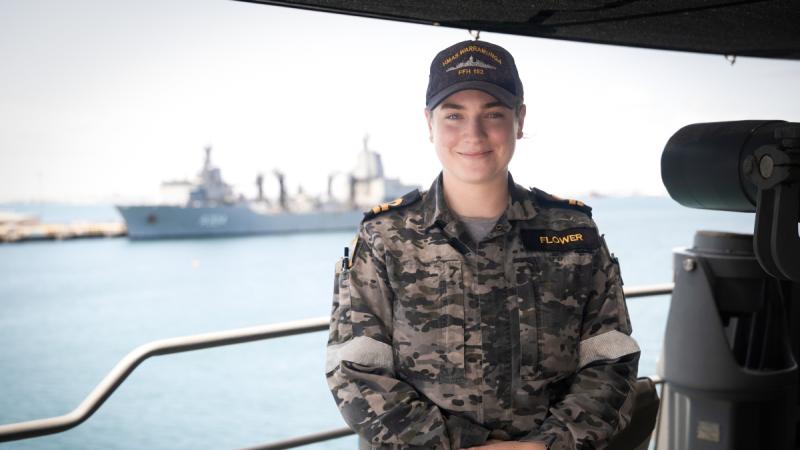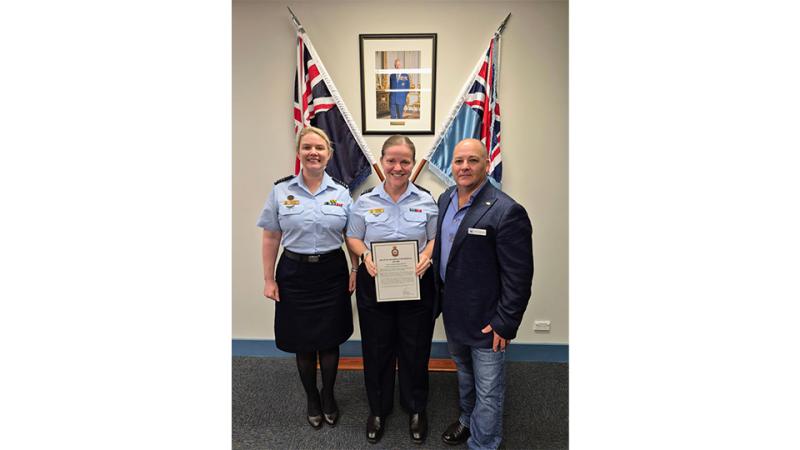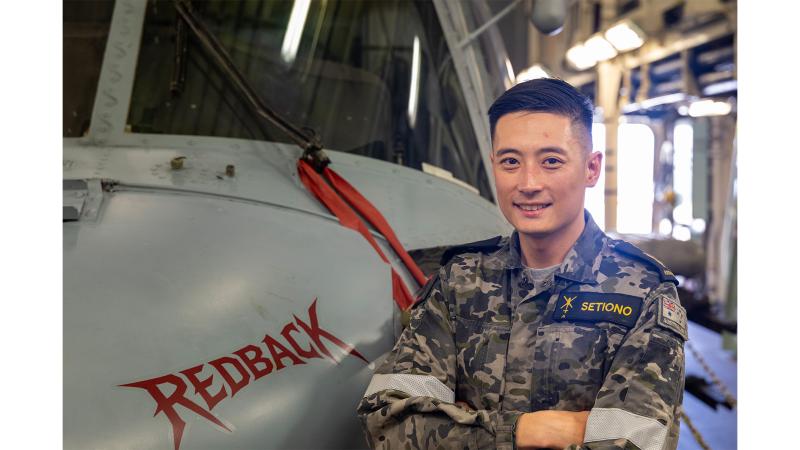10 October 2025
Of the nearly one million Australians who served in World War 2, Keith Fitzpatrick was believed to be among the last 1300 with lived experience of that conflict – a number now smaller following his death at the age of 101 in June.
Father to a serving Australian Army officer and grandfather to one of Air Force’s newest members, they remember him for his love of horseracing, his off-key singing, and the few stories they learned from his WW2 service.
His son, Major Mike Fitzpatrick, of the Defence Force School of Music, said it was Keith’s post-war service in Army that he spoke of most fondly – including his role in the Australian Army contingent at Queen Elizabeth II’s coronation and his time training national servicemen through the 1950s and ‘60s.
For the most part, he kept his WW2 service to himself.
During the war, Keith served with the 2/25th Battalion, completing two tours in New Guinea that totalled 359 days of combat.
While much of his personal experience of the war has been lost to time, one memory endured – the death of his mate Vic Bewert during the Battle of Shaggy Ridge.
“We probably heard more about Vic and what he meant to Dad than we ever did about Dad’s other war experiences,” Major Fitzpatrick said.
It was during a large attack, and Keith and Vic were both on the Bren gun. As Keith told the story, he looked over and “Vic was gone”.
“On Remembrance Day and occasions like that, Vic was always foremost in his mind,” Major Fitzpatrick said.
His grandson, Flying Officer Samuel Fitzpatrick, a 22-year-old cyber warfare officer with 462 Squadron, said his grandfather signed up for the war at just 17, having lied about his age.
“Thinking back to when I was that age, being sent off to a place like that and doing everything he did – it’s almost unfathomable,” Flying Officer Fitzpatrick said.
'We probably heard more about Vic and what he meant to Dad than we ever did about Dad’s other war experiences.'
It was only about 10 years ago, after Keith did a radio interview with two DJs preparing to walk the Kokoda Track, that the family learned he had been shot in the stomach.
They learned more from that interview than from anything Keith had ever told the family.
Major Fitzpatrick said his father always encouraged him and his siblings to follow their dreams, and for him, that meant following in his father’s footsteps.
With 43 years in the Army, Major Fitzpatrick said his highlights had been playing with the People Liberation Army’s band in 1999, and the Royal Tournament, a British military display held annually from 1880 to 1999.
What most stood out was being part of the welcome home parade for Vietnam veterans in 1985 through Sydney.
“Up until that point, there hadn’t really been any formal recognition for those who served in Vietnam. That parade was a turning point. The government had finally acknowledged the need to honour them,” Major Fitzpatrick said.
“Families lined the streets with big banners, and you could see in the Vietnam vets that this moment made a real difference in their lives."
Flying Officer Fitzpatrick said he spent a lot of time growing up on Army bases, especially when his dad had to babysit during the day.
“I had a pretty strong exposure to military life and the sort of environment they normally work in,” he said.
With an interest in computer networking and programming, cyberwarfare was a natural fit.
“I'm just really proud that I'm able to continue the service tradition for a third generation, even if Granddad would always rip into me for choosing Air Force over Army,” Flying Officer Fitzpatrick said.


